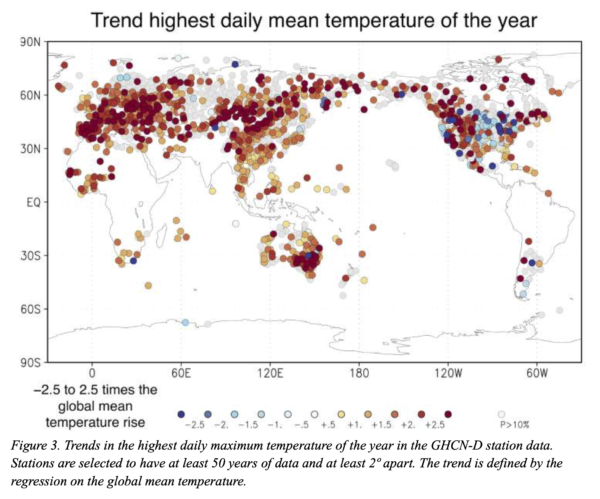Summary: It was almost impossible for the temperatures seen recently in the Pacific North West heatwave to have occurred without global warming. And only improbable with it.
It’s been clear for at least a decade that global warming has been in general increasing the intensity of heat waves, with clear trends in observed maximum temperatures that match what climate models have been predicting. For the specific situation in the Pacific NorthWest at the end of June, we now have the first attribution analysis from the World Weather Attribution group – a consortium of climate experts from around the world working on extreme event attribution. Their preprint (Philip et al.) is available here.

 Guest post by Veronika Huber
Guest post by Veronika Huber